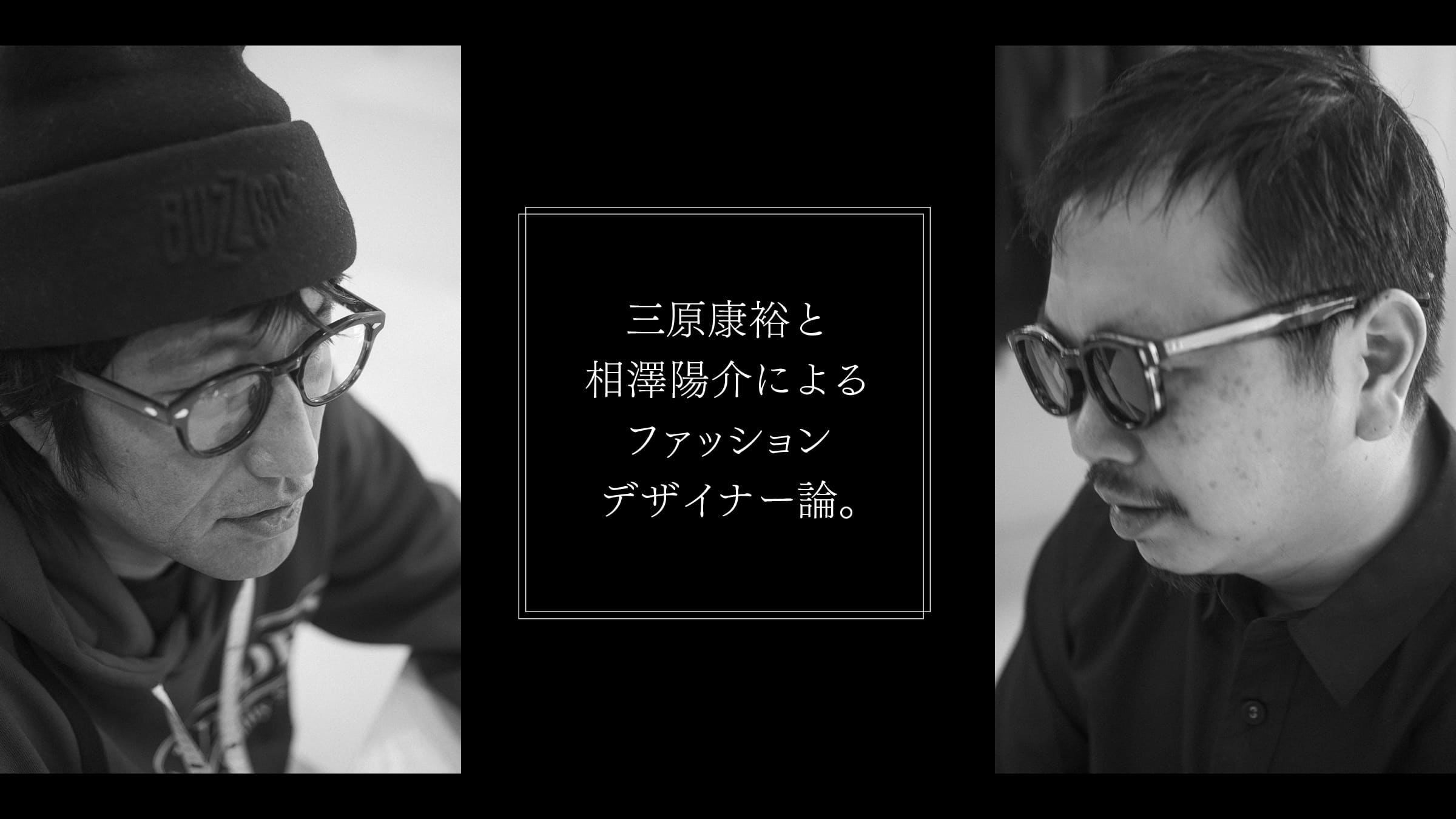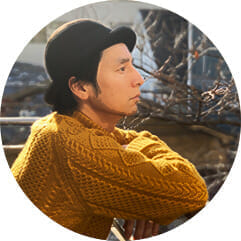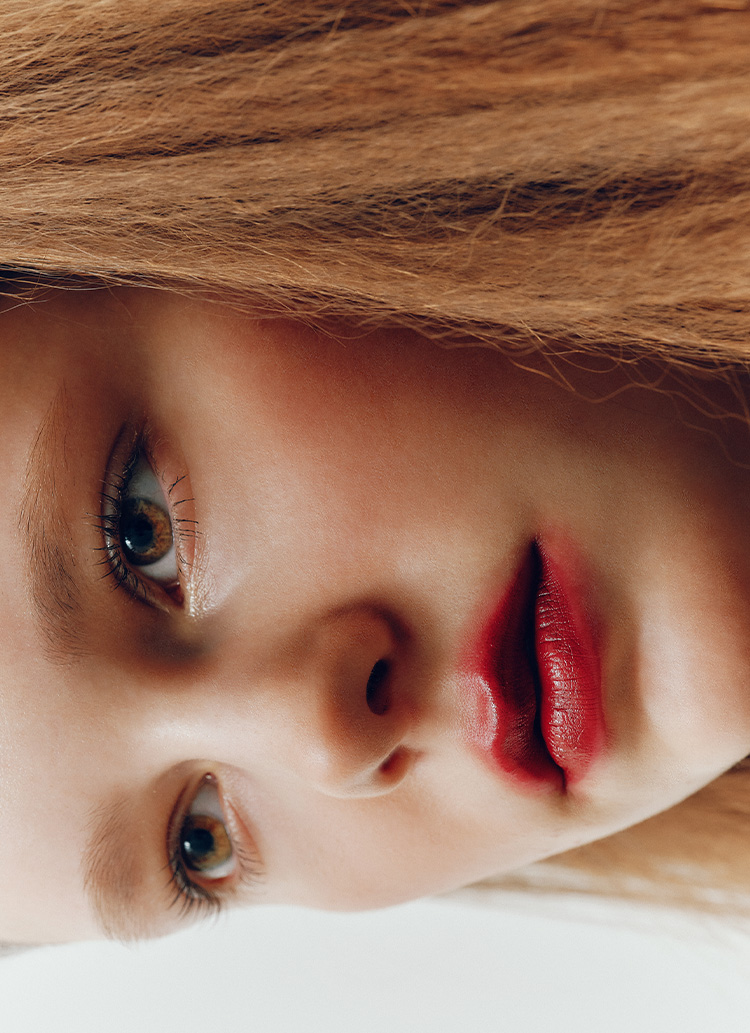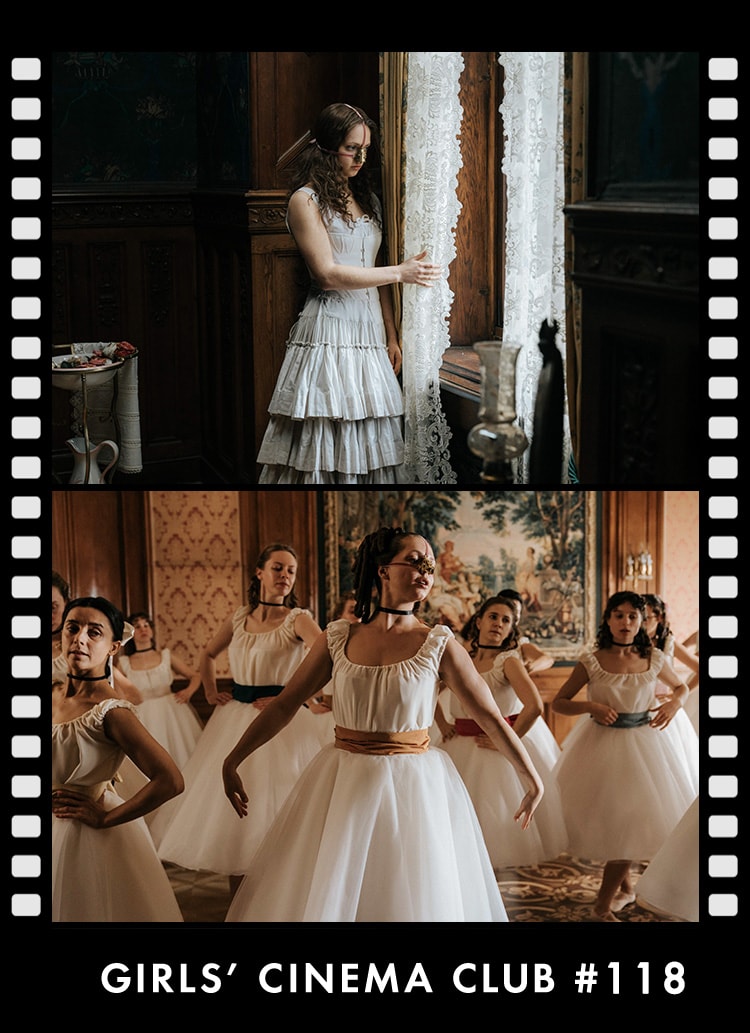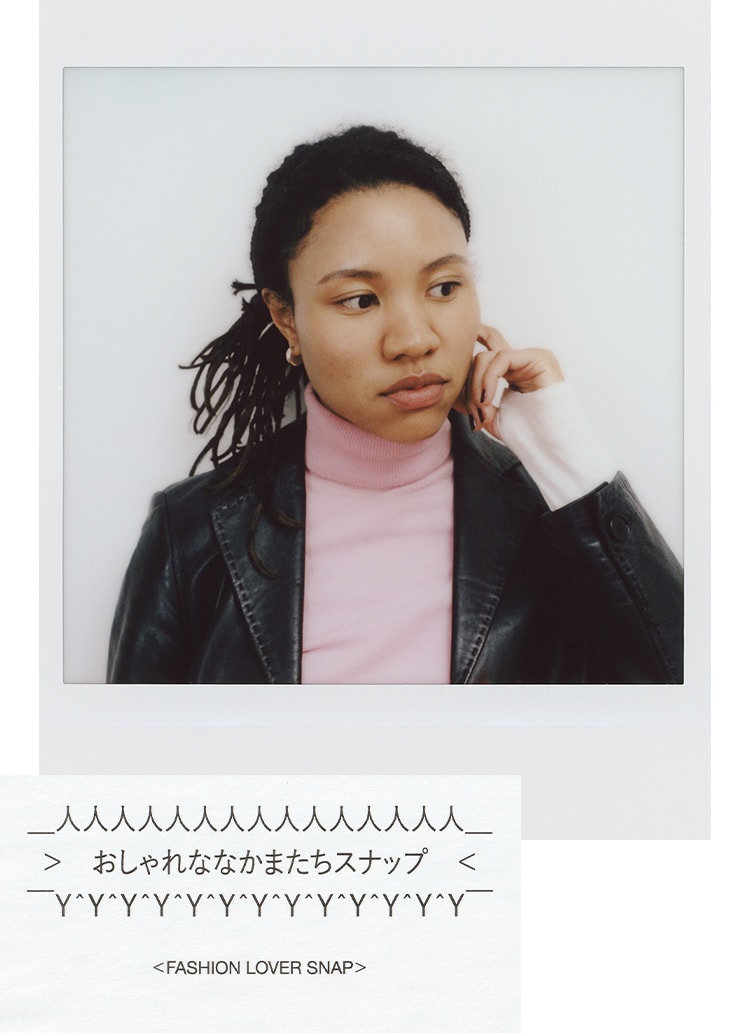Aizawa-san, how do you teach your students at school?
Aizawa:When the university first approached us, we told them that we only wanted to teach third-year students. Third-year students are just before they enter the workforce, so the assumption is that they have the right mindset to want to become fashion designers. If that was the case, I was willing to accept the job. And now that I'm actually going to do it, I'm thinking of teaching them everything I didn't teach them at university.
What exactly do you mean by that?
Aizawa:For example, how to gather information in a short period of time. As Mr. Mihara probably told you, there are jobs that require uniforms.
Mihara:There is.
Aizawa:In the past, I have worked on the (London) Olympics, and I had to come up with a huge number of ideas in a very short period of time. Moreover, there is a possibility that the ideas will be criticized. Public design is a risky business. In our classes, we discuss how the process of creating something involves repeated trial and error.
I see.
Aizawa:In terms of how we gather information, I don't mind if we use information from the Internet, but without a unique methodology of how we can chew up and integrate our own experiences and personal views into it, it won't be fashionable or design.
Mihara:It really is. How you pursue your methodology as your design is important.
Aizawa:We give the students assignments on a weekly basis, but the students decide what the final product will be. For example, an airline CA uniform. And I look at how they gather information to make it. It is boring if the information is just a copy of the history of airplanes from some other source, it is not enough at all. This is a presentation of preparation for the kind of work you would do if I were the client. Of course we are all aiming for a goal, but I am more interested in the process of getting there.
So it is an exercise in thinking and information processing.
Aizawa:When you reach the goal, sometimes the fix is no longer available. That is why the process is so important. In that sense, the same is true of our shows. If you think of an idea for a show alone, you will reach a limit somewhere. So, when do you share your ideas with the staff? You have to be able to present it well to them at that time. You have to make something other than your own power your ally. From there, the process of integrating and expanding your own ideas is very important.
Aizawa-san, you often say things to that effect in recent years.
Aizawa:I dislike the act of sitting at a desk and being satisfied with a design drawing, and think that the time and thought that goes into creating a picture is important. It is difficult to convey the message if you just say, "I created an interesting work of art at university. What was the purpose of the work? What were the roots of the work, and what was the process leading up to the goal? If you can't explain that, you are not the right person to be a designer.

Mihara:Aizawa-kun, you are very craftsman-like, even though you said earlier that you don't like the word "craftsman-like. But I really understand what you are saying.
Aizawa:The designers of the generation a little older than mine all seem stoic, but in fact they have very good communication skills. That is why I think they are surviving in the industry. If you only look at the surface, you will make a mistake.
You think that's a big misunderstanding.
Aizawa:Yes, he is. By the way, Mr. Mihara also has good communication skills.
What do you mean by "good communication skills"?
Aizawa:It means that you can properly verbalize what you are thinking and express it in your design. I don't think it is surprising that something is difficult to understand. Mr. Mihara has always been able to verbalize his ideas through the things he creates, and I would like to learn from him. In that sense, "Doublet," which was created by a student of Mr. Mihara's, is very easy to understand.
Mihara:That's right. As I told you in our previous interview, we started with the concept of how to think before we let Ino-kun design.
Aizawa:That is exactly what I am trying to say at the university.
Indeed.
Mihara:To create something, you have to have a philosophy, but if that philosophy is not original, I cannot accept it. There are many stories about how similar or dissimilar the design is. The difference between originality and unoriginality, then, is the way of thinking. Whether or not the manufacturing process can be explained properly. Unless you can do that, it is difficult. If all you do is create abstract paintings that cannot be explained, you will not last long. No matter what kind of work you do for any company, you must be able to express your own opinion, even if that work is different from your own collection. For example, when the brand "White Mountaineering" was launched, what kind of impact does it have on the world? Even if you copy the surface of the brand without understanding this, you cannot copy the philosophy.
Mihara-san, what do you think of the White Mountaineering brand?
Mihara:I like romance, men's romance. That is what I see in the clothes you make, Aizawa. That is why I think that if Edmund Hillary were alive today, he would wear White Mountaineering's clothes. There was a season when we made it snow at the "White Mountaineering" show.
2013 AUTUMN / WINTER
Aizawa:It was at Pitti, wasn't it?
Mihara:What I really liked at that time was that there is a romance beyond the clothes. There are many brands that don't have that. Also, you can see the scenery. It could be a mountain or a river. I think the scenery is romantic.

The theme for 〈White Mountaineering〉's 2019 AW was "MUTAION". Mr. Aizawa, how do you feel about the response, or rather, the impression you got when you tried making it?
Aizawa:This is my 9th show in Paris, and the brand is now in its 14th year. I think I have finally begun to understand the meaning of doing shows in Paris and what I am doing. There are many ways to evaluate my work, but I feel that I have come to understand what it means to create products and to show my ideas in a fashion show.
You don't have a stylist now, do you?
Aizawa:Yes, I do everything myself.







I think the 2019 AW show was the best of the last few seasons. I think the 2019 AW show was the best in the last few seasons.
Aizawa:Thank you very much. But I make products without thinking about shows or styling at all.
Mihara:In my opinion, the clothes you make have become a little softer. Before, I had the impression that you would do what you wanted to do regardless of the times, but I think things have changed a bit. When you are making things, you have many choices. For example, whether to be ahead of the times, to be in step with the times, or to follow the times. In such cases, most people "follow" the times. And although they think they are following the times, many of them are actually chasing the times. On the other hand, there are those who are ahead of the times but end up going too far ahead.
How about you, Mr. Aizawa?
Mihara:Aizawa, your first collection was quite dark. I would say it was dark or chic. After that, there was a period when he was trying to incorporate some kind of pop, and about 2 years ago, he started to get back to his early days. 19AW, I thought that while there was a lineage from that collection, this collection was more towards creating a new era. However, he is a strategist, so the collection had a sense of distance that people could see and match. I could see that.
I see.
Mihara:You made a snow duck kind of thing this time, right? When I saw that, I thought it was a great suggestion.


Aizawa:The pattern is actually made entirely of letters. The words "White Mountaineering" are all gathered together to form a pattern. The reason why I did this is because it is the antithesis of simply putting a brand logo. I wanted to make a pattern with a lot of logos, but nobody would notice them.
Mihara:That's nice and chic.
Aizawa:Thank you very much.
Mihara:I like clothes, so I like the real thing anyway. That's why I think what I'm doing now is a bit flamboyant. As for the logo, Aizawa, you may be twisted, but I think what you create is very productive.
Are you twisted?
Aizawa:Yes, I think I may be especially twisted these days. I talked about this in an interview for Vogue Runway the other day. I wanted to say that I am very frustrated with the market. I am grateful that Mr. Mihara mentioned this earlier, but starting with the 17AW season, I am doing something that I had not done before. To be more specific, I envision the ideal man in my designs.
www.whitemountaineering.com/collection/2017aw
Mihara:I see. I guess that was the reason I felt uncomfortable in a good way at that time.
You have a good eye for detail.
Mihara:Aizawa, you started your show in Japan, and after a few years in Paris, I think you have finally relaxed your shoulders. Whenever I receive recognition overseas, one of the keywords that always comes up is "Tokyo-ness. I have been told that too. People ask me what I think of "Yohji" and "Garçon. But I don't think it's about that. I think it's a time when I am starting to be able to do what I want to do.
I see.
Mihara:Everyone is a little nervous at first. Will it be a good business, or will it be recognized by foreign media? But after a few seasons, that kind of thing becomes less and less important. Good things and bad things are written about us. On the other hand, I feel as if I welcome bad reviews. In such a situation, I like the fact that "White Mountaineering" doesn't always meet the expectations of those who say good things about it. I feel that a brand that is like an "honor student" may have lost its fangs. Are you really doing what you love? I thought. Aizawa, you say what you want to say, and there may be times when you are disliked, but I don't dislike that. I feel like I am doing what I want to do now. Well, if you don't do that, you can't enjoy making things, can you?
Aizawa:I certainly don't feel self-conscious at all anymore. I've been feeling good lately.
Mihara:Yeah, it was nice to hear something more in depth than what I thought I was hearing.
Let's move to Mr. Mihara's office for a moment.



